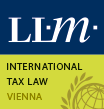Roman Seer
Born in Detmold/Germany in 1960. From 1979-1989, he gained tax practice experience as a tax officer in the German tax administration and later as a tax consultant assistant. From 1990-1996, assistant professor at the Tax Law Institute of Cologne. After receiving his postdoctoral lecturing qualification (dissertation 1992 and habilitation 1996) he became professor and head of the tax law chair of the Ruhr-University of Bochum (RUB). Since 1994, he is a member of the Permanent Scientific Committee of the German Tax Law Association (GTLA). From 2006 to 2014, he has been a member of the board of the GTLA (5 years as its chairman). From 2006 to 2016 he has been a member of the Academic Committee of the European Association of Tax Law Professors (EATLP). Since 2012, he is furthermore the chairman of the Berlin tax talks (Berliner Steuergespräche) and the Scientific Committee of German Scientific Institute of the German Tax Advisers Chamber. Professor Seer is a co-editor of the scientific journal StuW (Steuer und Wirtschaft), IWB (Internationale Wirtschaftsbriefe) and the tax educational journal Steuer & Studium. His scientific focus is on the correlation of tax law and tax procedure in a national and international context. In 2009, he founded the Institute of Tax Law and Tax Procedure of the RUB.Courses:
Exchange of Information
In a globalized tax world, the national means of the tax authorities are limited and are not sufficient to realize the tax claims. An increasing number of legal sources exist to overcome the gap between the worldwide taxation and the limited territorial power of the national tax authorities: e.g. the EU Council Directives concerning mutual assistance in the field of direct taxation and for the recovery of claims, the EU Council Regulation on administrative cooperation in the field of VAT, Articles 26 and 27 OECD Model Convention as patterns for bilateral agreements of information exchange and mutual assistance in tax collection, the OECD Model 2002 for a specific bilateral Tax Information Exchange Agreement (TIEA) which has recently been used for agreements with tax haven countries, the Convention of the Council of Europe/OECD on mutual administrative assistance in tax matters of January 25, 1988, and unilateral legal sources. The OECD and EU are forcing the Automatic Exchange of Information (AEOI) Approach to deal with financial accounts, similar to what the US is implementing, in a network of Foreign Account Tax Compliance (FATCA) Agreements. The course aims to provide a systematic understanding of the content, scope, and relationship of these legal sources. Furthermore, the course will show the tension between the need for an efficient exchange of information, on the one hand, and the need of legal protection of the taxpayer against violation of his commercial or professional secrets, on the other.
Back to list

